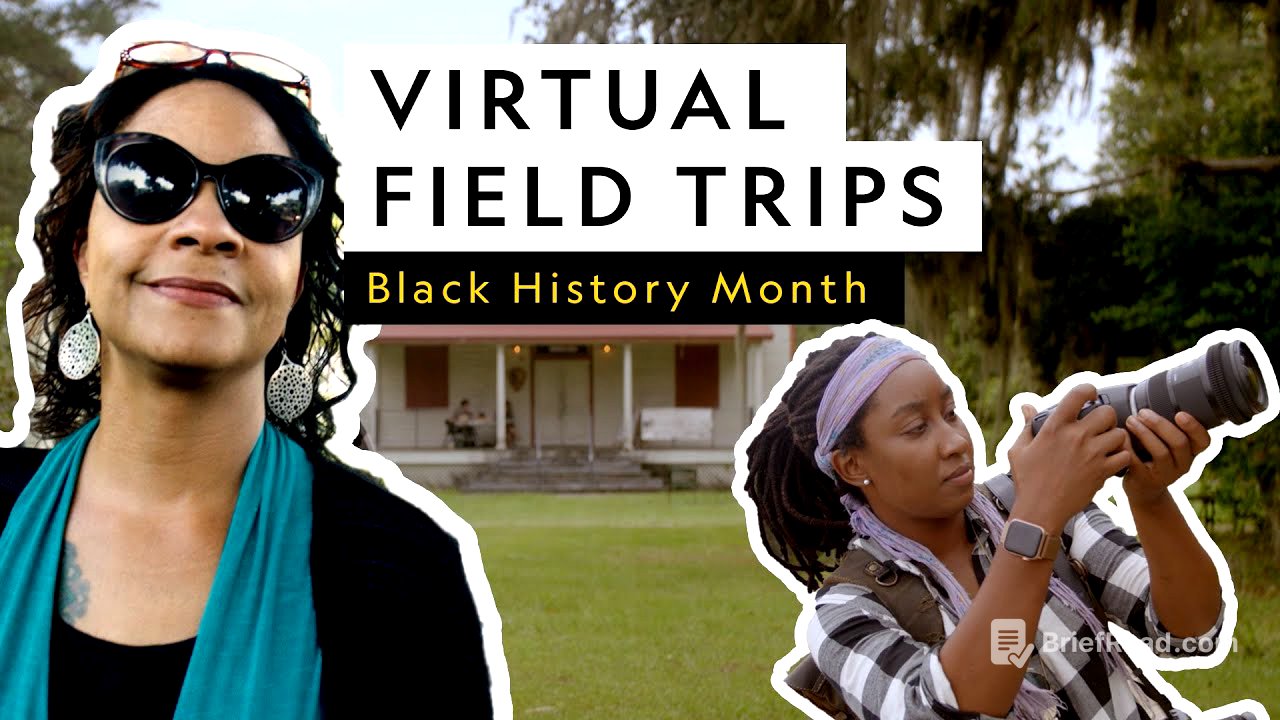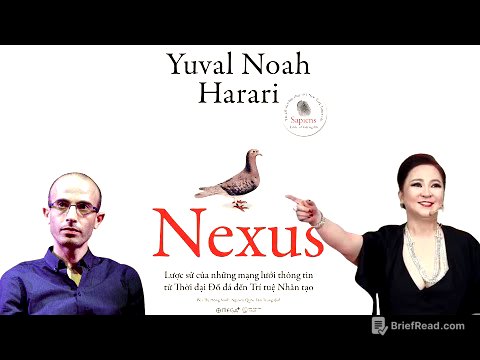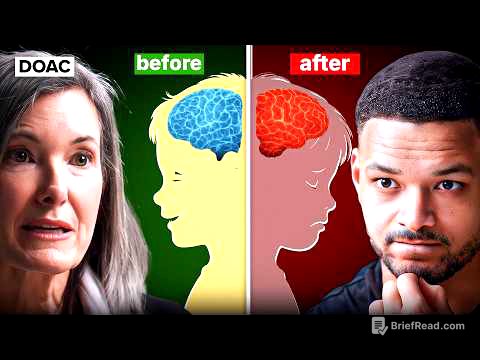TLDR;
This National Geographic Virtual Field Trip celebrates Black History Month by highlighting the contributions of black explorers throughout history and today. It features stories of Matthew Henson, who was essential to Arctic discovery, Candacy Taylor, who is mapping historically black businesses, Katherine Johnson, whose mathematical genius was critical to space exploration, and Asha Stewart, who documents African-American communities combating climate change. The program emphasizes the importance of recognizing and correcting historical oversights and encourages viewers to become storytellers in their own communities.
- Matthew Henson's crucial role in Arctic exploration was long overlooked.
- Candacy Taylor's Green Book project highlights the challenges and resilience of black travelers during the Jim Crow era.
- Katherine Johnson's mathematical contributions were essential to NASA's space missions.
- Asha Stewart empowers viewers to document and share their own stories.
Introduction: Celebrating Black History and Exploration [0:21]
Krista Strahan introduces the virtual field trip from National Geographic Headquarters in Washington, D.C., emphasizing that Black History Month is a time to reflect on the contributions and perseverance of black people throughout history. She highlights the importance of recognizing these stories not only in history books but also in our communities and families. The field trip aims to showcase black explorers who have made significant impacts on the world and to inspire viewers to become explorers themselves.
Matthew Henson: An Arctic Explorer [1:57]
The segment focuses on Matthew Henson, an African-American explorer whose contributions to Arctic discovery were initially overlooked. Born in 1866, Henson became an expert dog sledder, hunter, craftsman, and navigator during his 18-year collaboration with Robert Peary. Henson's knowledge of Inuit language and culture was crucial to their expeditions. Despite playing a vital role in reaching the North Pole in 1909, Henson's achievements were not fully recognized until 2000, when National Geographic awarded him the Hubbard Medal, its highest honor.
Pop Quiz: Testing Knowledge on Matthew Henson and the Arctic [5:25]
A pop quiz reinforces key facts about Matthew Henson and Arctic exploration. The quiz covers the duration of Henson and Peary's attempts to reach the North Pole (18 years), the landscape of the North Pole (flat, sea ice), and the number of dogs the team initially brought (246). The quiz emphasizes the challenges and conditions of Arctic exploration and the importance of accurate historical documentation.
Candacy Taylor: Documenting The Green Book [8:31]
Candacy Taylor, a cultural documentarian, discusses her project based on The Green Book, a travel guide for black people during the Jim Crow era. She explains that the Green Book was essential for safe travel, identifying black-owned businesses and communities where black travelers could avoid racism. Taylor is creating an interactive map that shows Green Book sites alongside socioeconomic statistics to illustrate the impact of racism on mobility and access to equality. She estimates that 80% of Green Book sites have been erased from the landscape, highlighting the importance of preserving and understanding this history.
Q&A with Candacy Taylor: The Importance of The Green Book [12:54]
In a Q&A session, Candacy Taylor answers questions about The Green Book and its significance. She explains that the Green Book was necessary due to the existence of sundown towns, all-white communities that posed a threat to black travelers. Taylor notes that while many Green Book sites are no longer around due to urban renewal and other factors, her StoryMap for National Geographic provides data on black social and physical mobility over the last hundred years. She emphasizes the importance of correcting history to avoid repeating mistakes in the future.
Katherine Johnson: A Pioneer in Space Exploration [17:08]
The segment highlights Katherine Johnson, a brilliant mathematician who played a crucial role in NASA's space missions. Johnson calculated trajectories for Mercury missions and Project Apollo, overcoming barriers of race and gender during her 33-year career at NASA. She advocated for change to ensure that others would not face the same barriers she did. National Geographic awarded her the Hubbard Medal in 2020, recognizing her significant contributions to space exploration.
Pop Quiz: Katherine Johnson and Space Exploration [22:38]
A pop quiz reinforces key facts about Katherine Johnson and space exploration. The quiz covers the fields of math Johnson used (all of the above), the name of the first black female astronaut (Mae Jemison), and Johnson's age when she died (101). The quiz emphasizes Johnson's groundbreaking achievements and the impact she had on the world during her lifetime.
Asha Stewart: Documenting African-American Communities [25:31]
Asha Stewart, an anthropologist and filmmaker, discusses her work documenting African-American communities combating climate change and environmental issues. She highlights the Gullah Geechee people, who have maintained African heritage through their language, food, and music. Stewart emphasizes the importance of storytelling and collaboration with communities to share their unique perspectives and experiences.
Q&A with Asha Stewart: Storytelling and Exploration [28:06]
In a Q&A session, Asha Stewart discusses the connection between storytelling and exploration. She emphasizes the importance of bearing witness to places and people and sharing their stories with the world. Stewart highlights the significance of collaborating with communities to tell truthful and unique stories. She also shares her experience documenting the Black Lives Matter demonstrations in D.C. and encourages students to start telling their own stories by documenting their families and communities.
Conclusion: The Power of Exploration and Storytelling [33:21]
Krista Strahan concludes the virtual field trip by summarizing the contributions of Matthew Henson, Katherine Johnson, Asha Stewart, and Candacy Taylor. She emphasizes the importance of recognizing black explorers throughout history and today, and encourages viewers to continue exploring and sharing their own stories.









